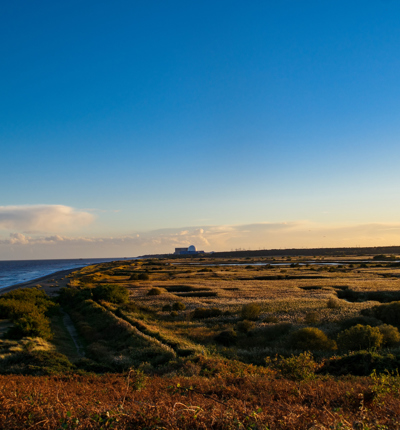
High Court hearing for Sizewell C legal challenge campaigners
Campaigners who have issued a legal challenge against the building of nuclear power plant Sizewell C have a High Court hearing starting on Wednesday 22 March.
Posted on 20 March 2023
Together Against Sizewell C will argue that the environmental impacts of securing a permanent water supply of two million litres per day at the proposed site in Suffolk were never assessed.
As a result, the government cannot guarantee the date the nuclear power plant will open, which means it has no way of knowing for sure that the plant’s contribution to climate change is enough to override the environmental harm it will cause.
Together Against Sizewell C will also make the case that no alternatives to nuclear power, including renewables, were considered when the Secretary of State for Energy, then Kwasi Kwarteng, gave the go ahead for the building of Sizewell C on 20 July 2022.
He rejected the recommendation of the Examining Authority which ruled in February 2022 that unless the outstanding water supply strategy could be resolved and sufficient information provided to enable the Secretary of State carry out his obligations under the Habitats Regulations, there was no case for a development consent order.
Together Against Sizewell C are represented by law firm Leigh Day, who have instructed counsel David Wolfe KC, Ashley Bowes and Ruchi Parekh for the rolled up judicial review hearing, which is expected to last for two days.
- The Energy Secretary did not assess the environmental impacts of building the power station, including the necessary permanent potable water supply solution, in breach of Regulation 63(1) Habitats Regulations 2017
- He did not assess the environmental impacts of the Power Station together with those of the permanent potable water supply solution
- He did not give adequate reasons for departing from Natural England’s advice that those impacts needed to be assessed as part of his decision
- He failed to consider alternative solutions to the power plant, before concluding there were imperative reasons of overriding public interest justifying the environmental harm it would cause
- He considered a legally irrelevant (because it was supported by no evidence) consideration, that the Power Station would make a “significant contribution” to reduce Green House Gas (GHG) emissions by 78% on 1990 levels by 2035
- He irrationally concluded the Power Station site would be clear of nuclear material by 2140
- He was wrong to fail to assess what impact the Power Station’s operational emissions would have on the UK’s ability to meet its climate change obligations

Campaigners issue legal challenge against decision to build Sizewell C Nuclear Power Station
A campaign group has issued legal proceedings against the government challenging its decision to allow for the Sizewell C Nuclear Power Station to go ahead against the advice of the planning Examining Authority.



